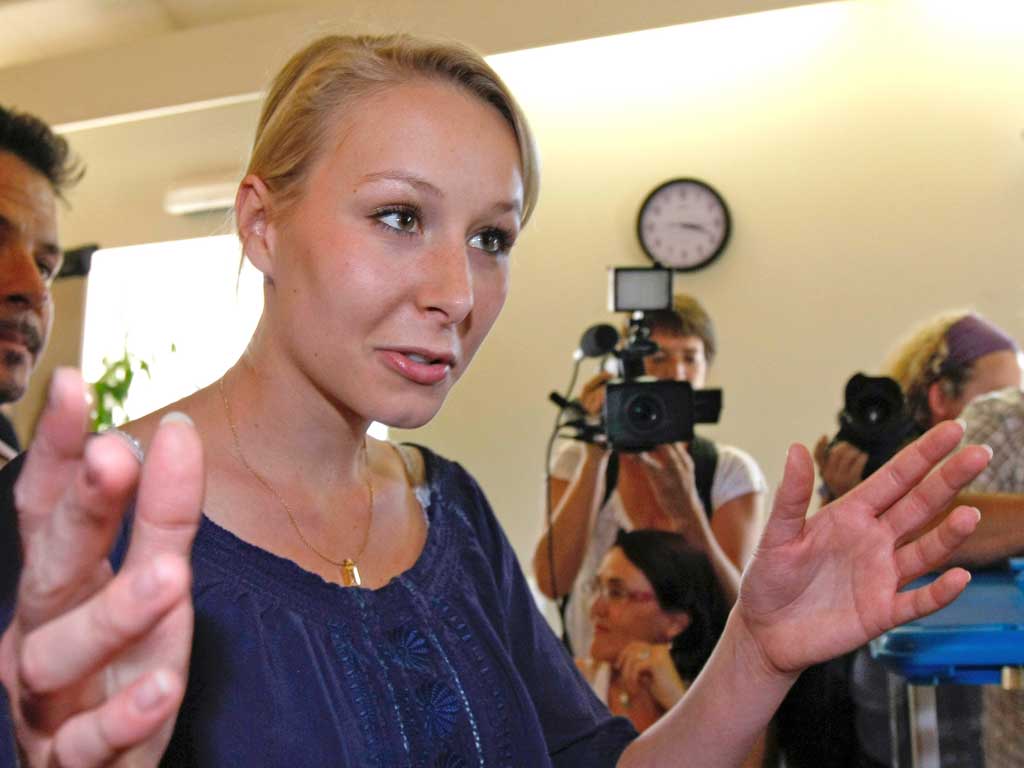Hollande secures grip on power with assembly victories
National Front leader Marine Le Pen fails in her bid to enter French parliament

The French far-right leader Marine Le Pen narrowly failed to win a parliamentary seat in the Pas de Calais last night, adding to a triumphant day for François Hollande's Socialists.
Two other National Front candidates won seats in the National Assembly for the first time since the mid-1980s. They included Ms Le Pen's 22-year-old niece, Marion Maréchal-Le Pen, who becomes the youngest parliamentarian in French history.
The former Socialist celebrity lawyer, Gilbert Collard, 64, won a seat for the far right in the Rhône delta.
Ms Le Pen saluted an "enormous success" for her party in ending what she called its "illegitimate 25-year absence" from parliament. She suggested that she might bring a formal complaint today about "suspicious" circumstances in her razor-thin, 114-vote defeat in the Pas de Calais by a local Socialist, Philippe Kemel.
Overall, President Hollande's moderate left won a decisive victory in the second round of the parliamentary elections and will have a clear majority to pursue his promised policy of "growth with discipline". His former partner, the 2007 presidential candidate Ségolenè Royal, lost her so-called "tweetgate" battle against a renegade Socialist in La Rochelle.
Official estimates suggested that President Hollande's Socialists would win 313 seats – substantially more than the 289 seats that they need for one-party control of the lower house of parliament. With about 20 Green deputies, far more than ever before, Mr Hollande and his Prime Minister, Jean-Marc Ayrault, should have an overwhelming majority in the 577-seat assembly for the next five years.
President Hollande will be able to pursue his experiment in growth promotion coupled with budgetary discipline, including as yet ill-defined cuts in the sprawling French state.
Since a Hollande victory was almost assured after the first round of voting last weekend, the suspense of France's fourth election night in two months focused on a series of high-profile local races. The xenophobic and anti-European National Front was hoping to break into the assembly for the first time since 1986-88, with a victory for its leader, Marine Le Pen, in the depressed former mining town of Hénin-Beaumont in the Pas de Calais.
Early counting suggested that she had won but the final count put her Socialist rival 114 votes ahead. Election officials refused a recount.
The two victories for the far right elsewhere were hailed by Ms Le Pen as a vindication of her policy of "de-demonising" the NF by excluding overtly racist supporters and language. Tactical manoeuvring between the two rounds of the election breached the barrier between far right and centre right – offering encouragement to Ms Le Pen's plans to redraw the map of party politics.
Mr Collard won a nasty three-way contest, with accusations of violence on all sides, in the "Petite Camargue". In Carpentras, in the Rhône valley, Marion Marechal-Le Pen the grand-daughter of the party's founder, Jean-Marie Le Pen, won a seat in a triangular contest forced by the refusal of a Socialist to withdraw. In Orange, nearby, an independent far-right candidate also won a seat.
Ms Royal failed to save her political career in a two-way fight with a rebel Socialist candidate in La Rochelle on the Atlantic coast. This contest was promoted to the status of global, political soap opera last week by a tweet from the French First Lady, Valérie Trierweiler, publicly encouraging the rebel candidate, Olivier Falorni.
Ms Royal is the mother of the President's four children.
The nationwide turnout fell to a new low of 56 per cent, below the disappointing 60 per cent registered in the first round and far below the 80 per cent of the presidential elections. After four election days in two months, France was evidently suffering from voting fatigue.
Join our commenting forum
Join thought-provoking conversations, follow other Independent readers and see their replies
Comments
Bookmark popover
Removed from bookmarks